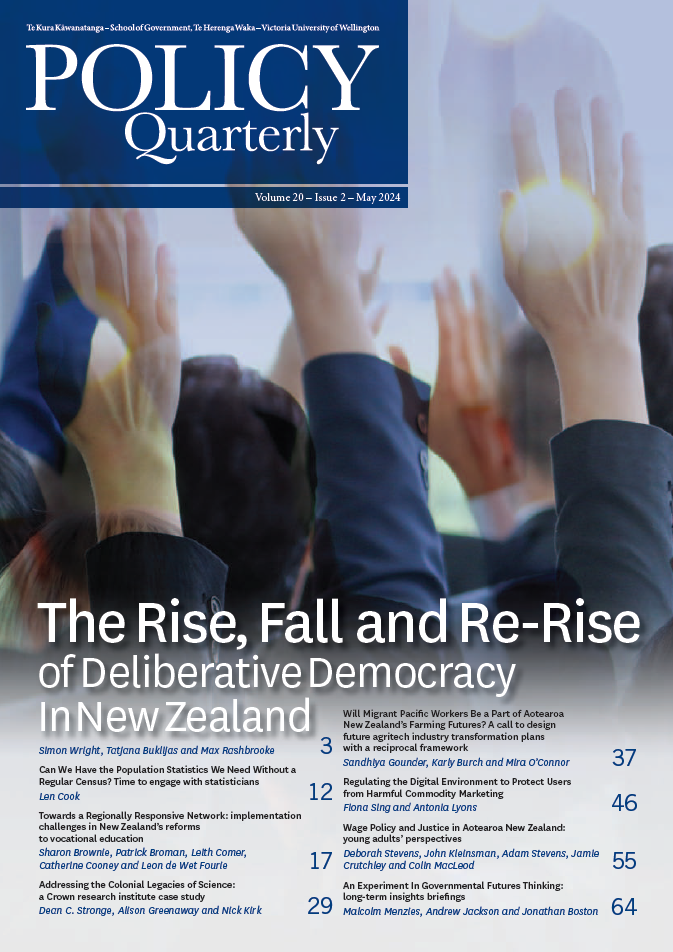Will Migrant Pacific Workers Be a Part of Aotearoa New Zealand’s Farming Futures? A call to design future agritech industry transformation plans with a reciprocal framework
DOI:
https://doi.org/10.26686/pq.v20i2.9477Keywords:
agricultural technology (agritech), RSE scheme, collaborative design (co-design), extractivism, ethic of reciprocity, agricultural workAbstract
In 2020 and 2023 the New Zealand government depicted a vision for technology-enhanced farming futures in the Agritech Industry Transformation Plan. However, the plan overlooks the critical role of seasonal, migrant Pacific workers in sustaining Aotearoa New Zealand’s horticulture industry. It also contains little practical planning for what a transition from a largely human to a largely robotic workforce should entail. We show how these omissions reflect an extractive framework which threatens workers’ wellbeing and the sustainability of Aotearoa New Zealand’s horticulture industry. We provide recommendations for how future agritech industry plans can consciously adopt a more sustainable reciprocal framework.
Downloads
Downloads
Published
Issue
Section
License
Permission: In the interest of promoting debate and wider dissemination, the IGPS encourages use of all or part of the articles appearing in PQ, where there is no element of commercial gain. Appropriate acknowledgement of both author and source should be made in all cases. Please direct requests for permission to reprint articles from this publication to Policy-Quarterly@vuw.ac.nz.



